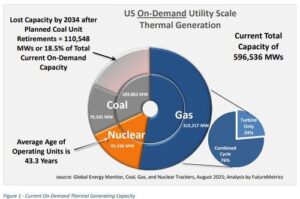FutureMetrics suggests coal-to-wood pellet conversions could meet US power demand

Authored by FutureMetrics President William Strauss, the report highlights a projected rise in US electricity demand of 175 gigawatts (GW), driven in part by increased consumption from artificial intelligence operations. At the same time, more than 110 GW of coal-fired capacity is scheduled for retirement, creating a potential gap of nearly 300 GW.
Strauss points out that many nuclear plants are already operating beyond their expected lifespans, while current policies constrain the expansion of wind and solar power, as well as the energy storage needed to manage their intermittency. Although new gas-fired plants are planned, they are unlikely to close the projected gap.
The white paper notes that wood pellet fuel has successfully replaced coal in UK power stations, where most pellets are imported from the US. Last year, the US exported just under seven million metric tons of wood pellets to Britain.
With a forthcoming subsidy change in 2027, Strauss predicts that millions of tons of pellets will become available domestically, alongside further potential for US production.
Wood pellets also offer opportunities for carbon-negative energy when combined with carbon capture and storage (CCS) technologies, the report adds.
Strauss encourages owners of AI processing centres to support the conversion of selected coal plants by entering long-term electricity agreements, helping to extend the life of existing infrastructure while reducing reliance on fossil fuels.
“The conversion of coal stations to sustainably sourced, low-carbon solid fuel could alleviate future capacity pressures and give new purpose to existing assets,” Strauss wrote.
















